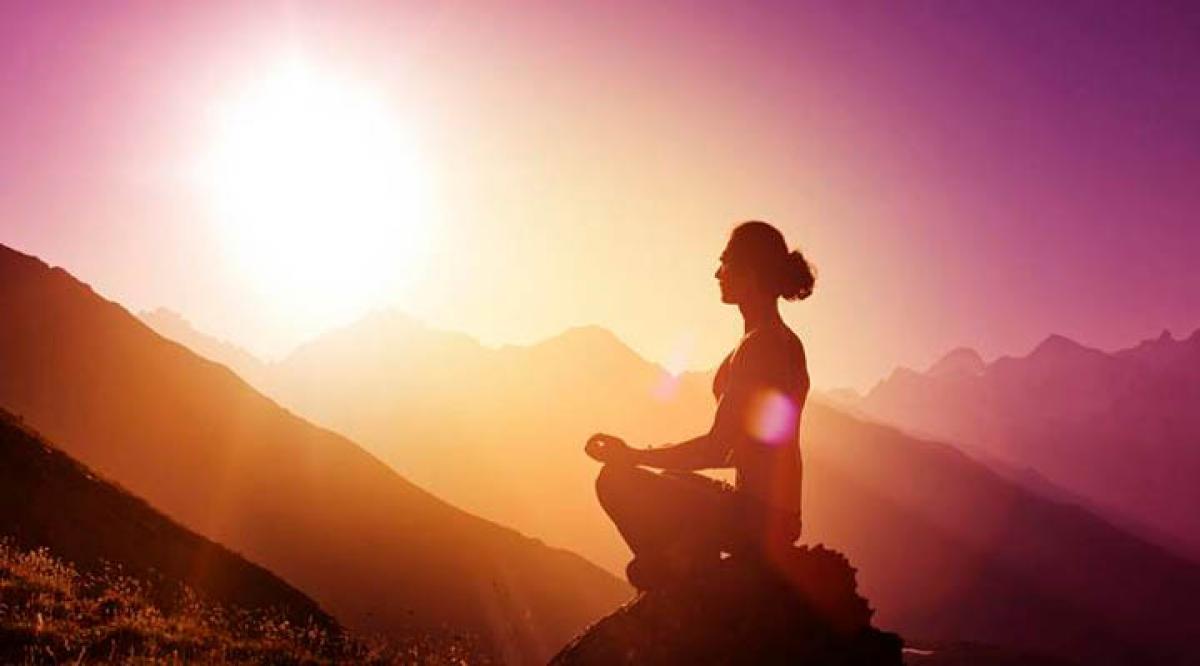Live
- HMWSSB lays focus on commercial buildings to fix sewage problem
- Rich tributes paid to Ramamurthy Naidu
- Denmark’s Victoria Crowned Miss Universe
- Vaishnaw flags 4 major challenges faced by news media
- TGCHE looks for a 360-degree ‘Look-in-India’ model
- High priority to strategic partnership with Nigeria
- TG govt scraps road tax, registration fee on EVs
- India test fires ‘un-interceptable’ cruise missile
- ‘Antharanga Veekshanam’ book released
- Manipur burns
Just In

x
Highlights
Practices like yoga, meditation and can help curb the need for general healthcare services by almost 50 per cent, according to a new study. \"Evoking the relaxation response or a physiologic state of deep rest, helps alleviate stress and anxiety, while also affecting heart rate and blood pressure,\" according to a study by Harvard-affiliated Massachusetts General Hospital Institute for Technology Assessment and the Benson-Henry Institute.
Practices like yoga, meditation and can help curb the need for general healthcare services by almost 50 per cent, according to a new study. "Evoking the relaxation response or a physiologic state of deep rest, helps alleviate stress and anxiety, while also affecting heart rate and blood pressure," according to a study by Harvard-affiliated Massachusetts General Hospital Institute for Technology Assessment and the Benson-Henry Institute.
.jpg)
"Our study's primary finding is that programs that train patients to elicit the relaxation response can also dramatically reduce health care utilisation," said James E Stahl. "These programs promote wellness and in our environment of constrained health care resources, could potentially ease the burden on our health delivery systems at minimal cost and at no real risk," he said.
By doing a comparative analysis of information available on Research Patient Data Registry (RPDR) of Partners HealthCare and data on individuals participating in the BHI Relaxation Response Resiliency Program (3RP) from 2006 to 2014, researchers came to the conclusion that practitioners of yoga, meditation, prayer spent significantly lower than non-practitioners, on medical services.
The study also found that practitioners primarily benefitted from neurologic, cardiovascular, musculoskeletal, and gastrointestinal ailments.
More On

Next Story
More Stories
ADVERTISEMENT
© 2024 Hyderabad Media House Limited/The Hans India. All rights reserved. Powered by hocalwire.com







